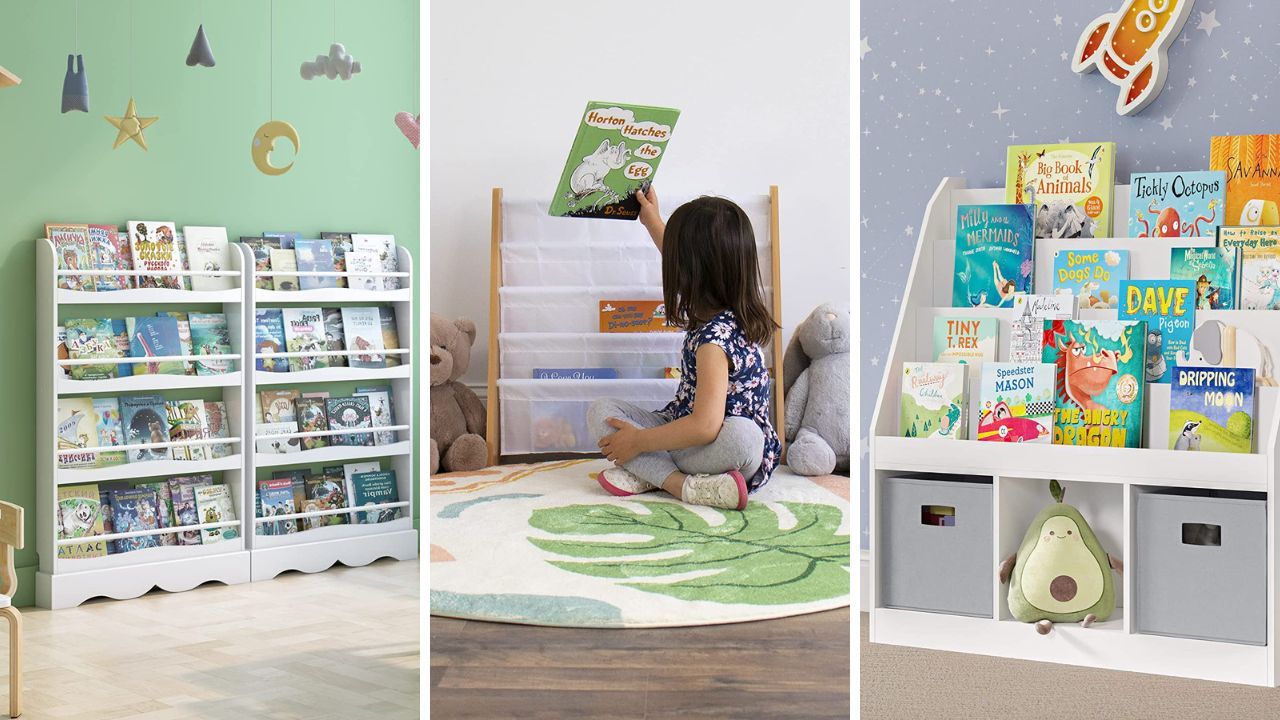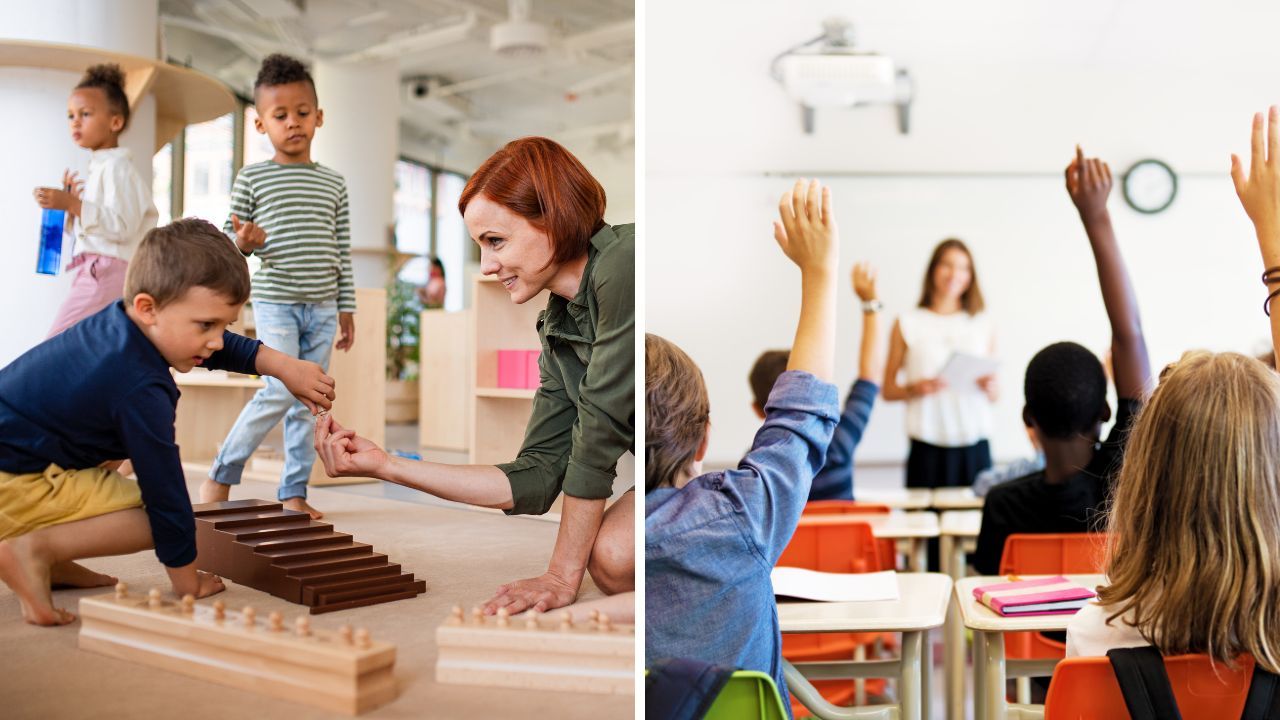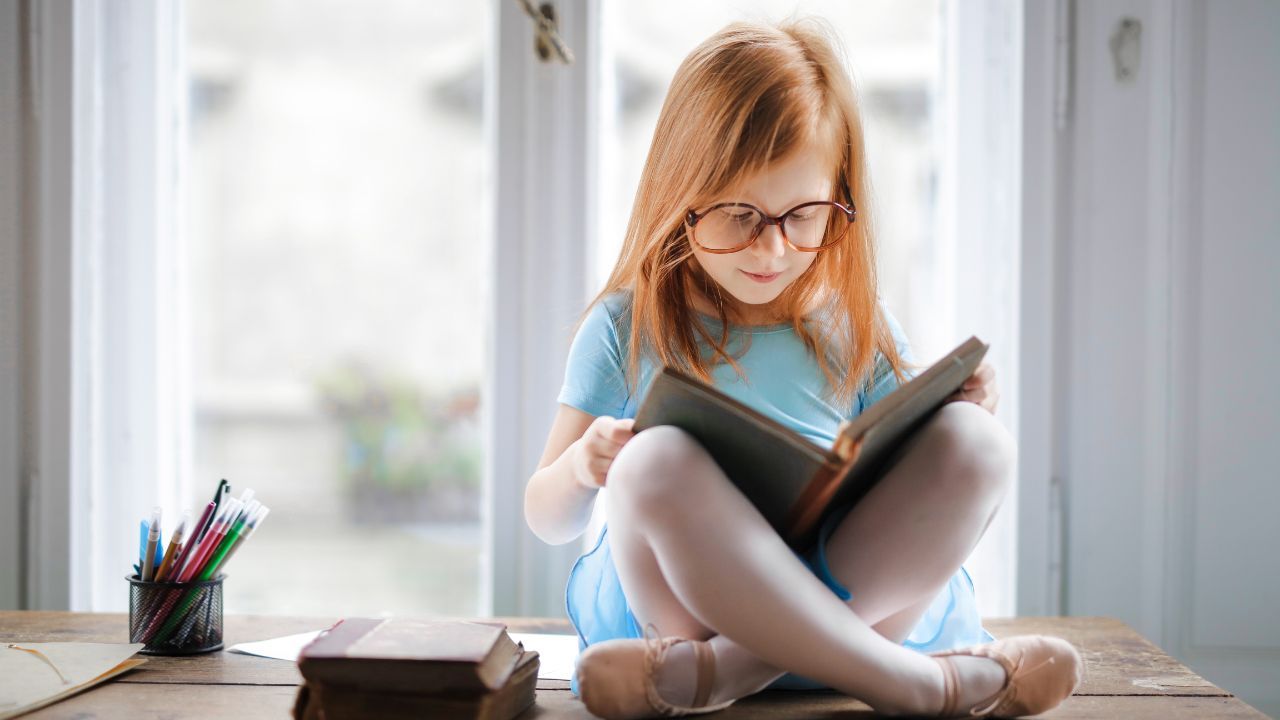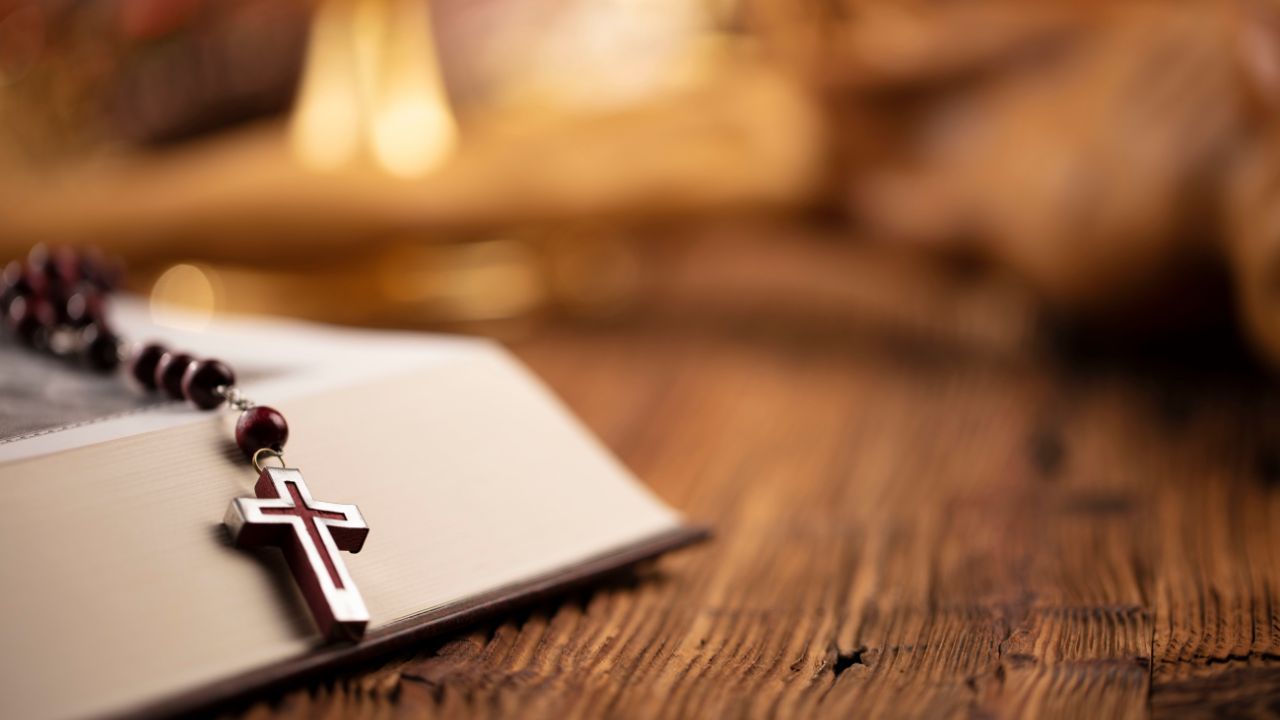
Are Montessori Schools Religious: Truth Unveiled
Unravel the truth: Are Montessori Schools Religious? Dive into a rich exploration of Montessori's unique, secular approach to education!
You've probably heard about Montessori schools, those innovative educational havens that have been making waves in the world of early childhood education.
But have you ever paused to wonder about their religious affiliations? Do they lean towards a specific faith or are they completely secular? Let's unravel this mystery together!
Maria Montessori: The Catholic Pioneer with a Universal Vision

Born in 1870 in Chiaravalle, Italy, Maria Montessori was raised in a devout Catholic family. Her faith played a significant role in shaping her worldview and educational philosophy.
But here's where it gets interesting — Maria Montessori was no ordinary educator. It is noted that she often found herself at odds with the Catholic church.
She was a visionary, a pioneer, and a trailblazer who dared to innovate in an era defined by convention. Maria was the first woman to graduate from the University of Rome's medical school, a testament to her extraordinary determination and intellect.
Her experiences working with children led her to develop a unique educational approach that focused on fostering independence, curiosity, and respect for a child’s natural psychological development.
While her Catholic roots informed her values, they did not confine her vision. She believed in the inherent goodness and potential of all children, regardless of their religious background.
This universal vision was groundbreaking at the time and remains one of the most enduring aspects of Montessori education.
So, while Maria Montessori's Catholic faith shaped her formative years and influenced her personal values, it did not limit the scope of her educational vision.
Instead, she used her faith as a springboard to develop an educational approach that celebrates diversity, fosters mutual respect, and encourages independent thinking.
Montessori Method: A Leap Towards Secular Education
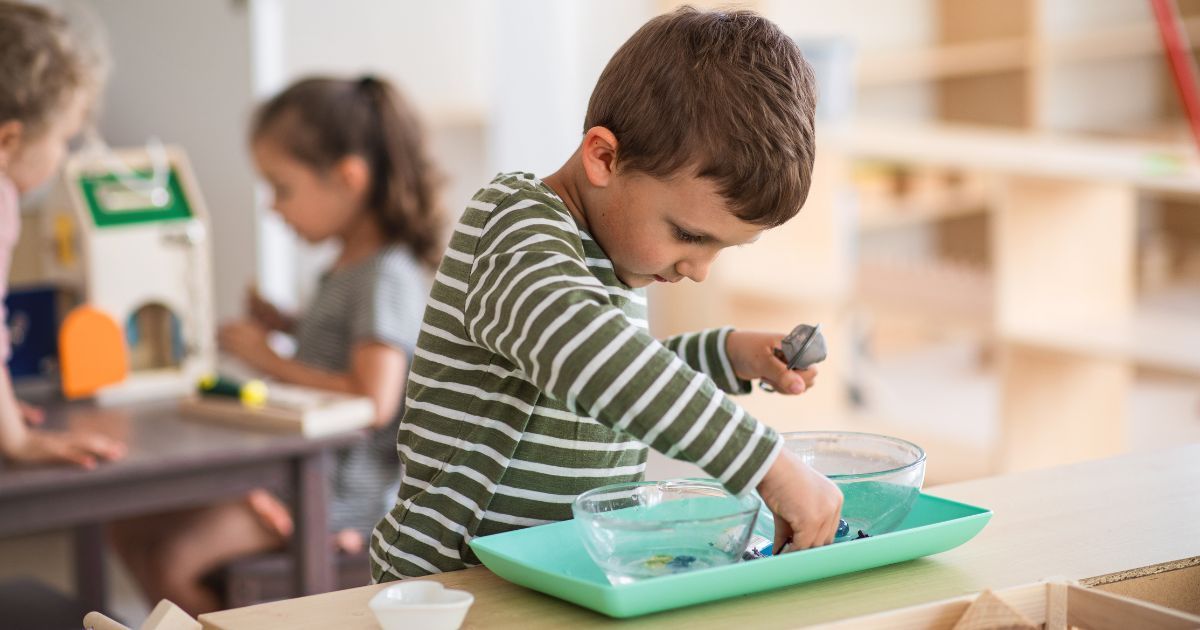
- Step into a Spectacularly Different World: From the moment you enter a Montessori school, you're stepping into a realm where each young child is the captain of their educational journey. It's not by chance, but a deliberate design that has revolutionized secular education.
- The Montessori Method: This approach is rooted in respect for each child's uniqueness and the belief that learning should be a joyful, self-led adventure. It goes beyond religious boundaries, focusing on universal aspects of human growth. It's less about religious instruction and more about nurturing critical thinking, empathy, and respect.
- Universal Applicability- A Key Benefit: Whether your family is Christian, Muslim, Jewish, Hindu, Buddhist, agnostic, or atheist, the Montessori curriculum meets children where they are. It respects and acknowledges all religious beliefs, fostering an environment where diversity is celebrated, not just tolerated. Experience the joy of a truly inclusive education!
The Montessori Classroom: A Microcosm of the World
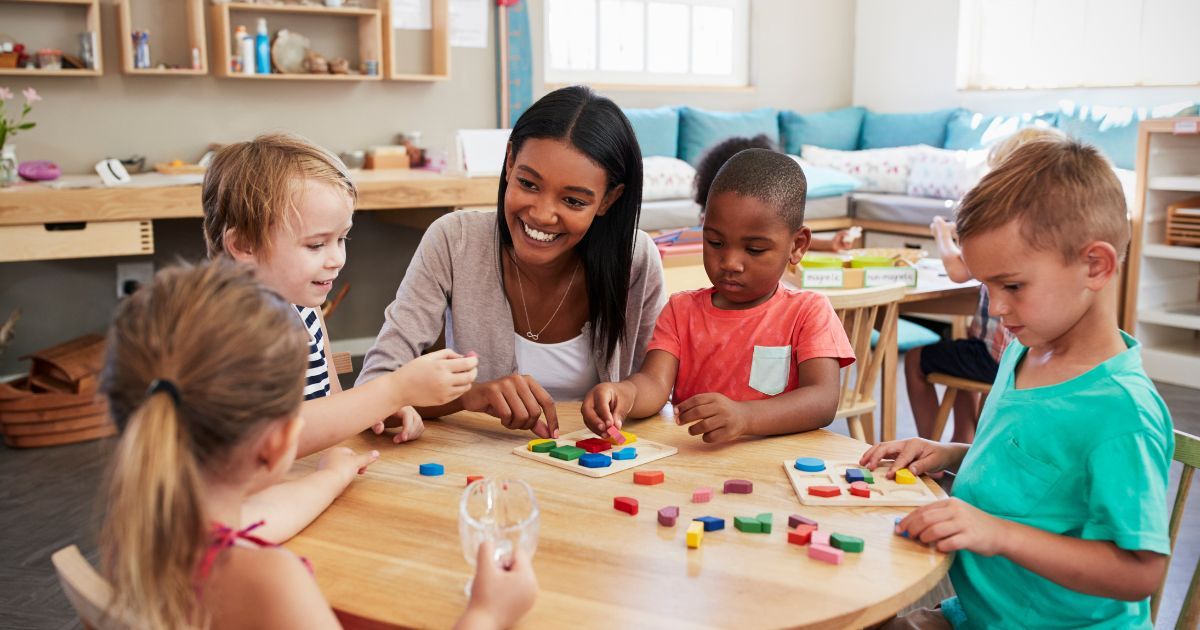
Imagine a classroom that mirrors the diversity of the world. That's what you'll find in Montessori classrooms.
Here, children from various backgrounds come together to learn, explore, and grow. They learn about different cultures and religions not from textbooks, but from each other.
The goal is to foster understanding and respect for all cultures and religions.
This inclusive and diverse environment is not just beneficial for children from minority backgrounds but for all children.
Research shows that exposure to diverse cultures and viewpoints can boost creativity, problem-solving skills, and emotional intelligence in children.
In essence, by embracing a secular approach to education, Montessori schools have created a microcosm of the world within their classrooms. They've fostered an environment that respects and celebrates diversity, paving the way for a generation of global citizens who are empathetic, curious, and respectful of all faiths and cultures.
Montessori Schools Today: Embracing All Faiths and None
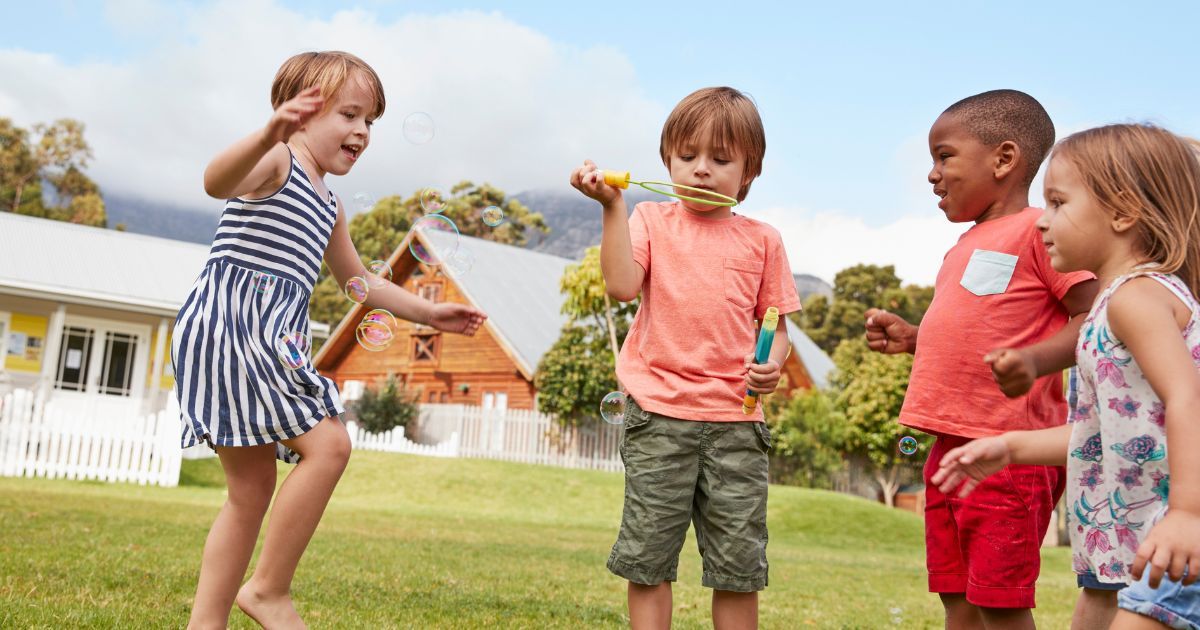
- Montessori Today: Fast forward to the present day, and you'll witness Montessori schools thriving worldwide. These dynamic educational hubs serve as neutral grounds, free from religious bias and open to all.
- Spiritual Growth, Not Religious Instruction: Montessori schools have evolved into sanctuaries that nurture spiritual growth without endorsing any particular religion.
- Global Perspective: Here, children learn about diverse religions and belief systems as part of their broader education about the world. It's not about promoting one faith over another, but about fostering understanding and respect.
Frequently Asked Questions
Do Montessori schools have a religious affiliation?
Montessori schools are not inherently religious, but individual schools may choose to incorporate religious teachings. The focus is on holistic child development, not affiliation with a specific religion.
What religion is a Montessori?
Montessori schools aren't tied to a specific religion. They focus on child-centered learning and respect for all faiths and cultures.
Is Montessori Catholic-based?
Although Maria Montessori, the founder of the Montessori method, was Catholic, Montessori schools themselves are not affiliated with any specific religion. Instead, they prioritize personalized learning and foster respect for diverse cultures and beliefs.
Montessori schools can be privately owned, publicly funded, or faith-based. Each school has the autonomy to establish its own policies regarding religious education, spiritual beliefs, and holiday practices. It's worth noting that many Montessori schools receive financial support from religious organizations.
And I might note that many Montessori schools have succeeded in blending faith education and the Montessori method.
What is the belief of Montessori education?
It believes in empowering kids to learn at their own pace, sparking curiosity and creativity. It's all about nurturing individual strengths and fostering a love for lifelong learning - a must-try approach for all little explorers!
What is the criticism against Montessori?
Critics of Montessori education often point out two main issues: it's not always affordable or accessible to everyone, and there's a belief that it might limit creativity due to its structured environment.
However, remember that every education system has its pros and cons - it's all about finding what works best for each unique learner!
What is the difference between a Montessori school and a regular school?
Montessori schools are unique because they let kids learn at their own pace and choose their own activities, while regular schools usually have a set curriculum and schedule for everyone.
So, it's like being a captain of your own learning ship versus being part of a crew on a big school ship!
Are kids happier in Montessori schools?
Yes, it seems so. Studies have found that kids in Montessori schools often grow up to be happier adults. It's like they get a head start on finding their happy place while learning and growing! Source: Psychology Today
Are Montessori students more successful?
Final Thoughts
So is Montessori religious? Well we've journeyed together through the fascinating history and evolution of Montessori schools, and we've seen how these educational powerhouses have transcended religious boundaries to become beacons of secular education.
From Montessori's Catholic roots to today's inclusive classrooms that embrace all faiths, Montessori schools have charted an impressive course.
They've dared to innovate and be different, creating an educational model as diverse as our society.
In a Montessori classroom, each child is celebrated for their individuality, curiosity, and potential. Children learn about different cultures and religions to understand and respect, fostering global citizenship and empathy in our interconnected world.
The beauty of the Montessori method lies in its universal appeal. Whether devout Catholics, practicing Muslims, committed atheists, or somewhere in between, all find a home in a Montessori school.
Here, children not only learn to read and write but also to think critically, question, explore, and respect.
As we celebrate Montessori parenting and religion, let's applaud Maria Montessori's vision that respects all faiths.
Let's appreciate modern Montessori schools that uphold this vision, creating inclusive, respectful, and enriching environments for our children.
In today's diverse society, the Montessori approach shines brighter than ever. Here's to Montessori – a beacon of secular education, lighting the way towards a more inclusive world!
Before You Go...
